The Bulldog, with its iconic loose, saggy skin and gentle demeanor, is a breed that captures the hearts of many. Renowned for their courage and excellent guarding instincts, Bulldogs require a balanced diet to maintain their robust health and prevent some of the breed-specific health issues they face. This guide delves into the dietary requirements of the Bulldog, giving you comprehensive insights on feeding quantities, and the associated costs.
1. Bulldogs Caloric Needs
Understanding a Bulldog’s caloric needs is paramount since they can easily become overweight, which can exacerbate health issues like hip dysplasia. Here’s a rough breakdown:
a. Puppies: Due to their rapid growth and high energy, Bulldog puppies require about 50 to 60 calories per pound of body weight daily.
b. Active Adults: An adult Bulldog with regular activity might need around 40 to 50 calories per pound of body weight per day.
c. Sedentary or Older Bulldogs: Less active or senior Bulldogs will require fewer calories, roughly 30 to 40 calories per pound of body weight daily.
2. Selecting Quality Food
High-quality dog food can make a significant difference in a Bulldog’s overall health. Look for foods that list real meat as the primary ingredient and avoid those with fillers like corn or soy. Premium foods also tend to contain beneficial ingredients like omega fatty acids, which can help manage the Bulldog’s iconic skin folds.
3. Factors Influencing Food Amounts
a. Activity Levels: Bulldogs, while not as energetic as some breeds, still vary in their activity levels. Those who play more will need more food.
b. Health Issues: Bulldogs can suffer from conditions like hip dysplasia and respiratory issues, which can be managed with an appropriate diet.
c. Age: Like all breeds, Bulldogs’ dietary needs change as they age. Puppies, adults, and seniors all have different requirements.
4. Importance of Weight Monitoring
Due to their stocky build, Bulldogs can quickly become overweight, leading to several health issues. Regular weight checks and feeding adjustments are essential to keep them in optimal health.
5. Monthly Feeding Cost Estimation
Assuming you’re using a premium dog food priced around $2 per pound, which provides about 400 calories per cup:
For an adult Bulldog weighing 50 pounds and needing about 2000 calories daily:
- Daily food requirement = 2000 calories ÷ 400 calories/cup = 5 cups daily.
- Monthly food requirement = 5 cups x 30 = 150 cups.
- A 30-pound bag generally offers around 120 cups of food, so a Bulldog would need a bit more than a bag per month.
- Monthly cost = 1.25 bags x $60 (assuming $2 per pound) = approximately $75.
Note: This is an approximate value and will vary based on the brand, region, and specific dietary needs.
6. Treats and Snacks
Bulldogs love their treats, but moderation is key. Treats should only make up a small percentage of their daily caloric intake. When rewarding your Bulldog, consider healthy options like carrots or specialized dog treats.
7. Hydration Matters
Ensuring your Bulldog has access to fresh water is crucial, especially given their potential for respiratory issues. Adequate hydration aids digestion and maintains overall health.
8. Consider Dietary Supplements
Given the breed’s unique health challenges, some Bulldogs may benefit from dietary supplements like glucosamine or fish oils. Always consult with a vet before introducing any supplements.
Our 5 Top Foods for Bulldogs
The diets were selected by our founder Justin Palmer, a certified canine nutrition expert, specifically with Bulldogs in mind:
| Food | Pros | Cons |
|---|---|---|
|
|
|
|
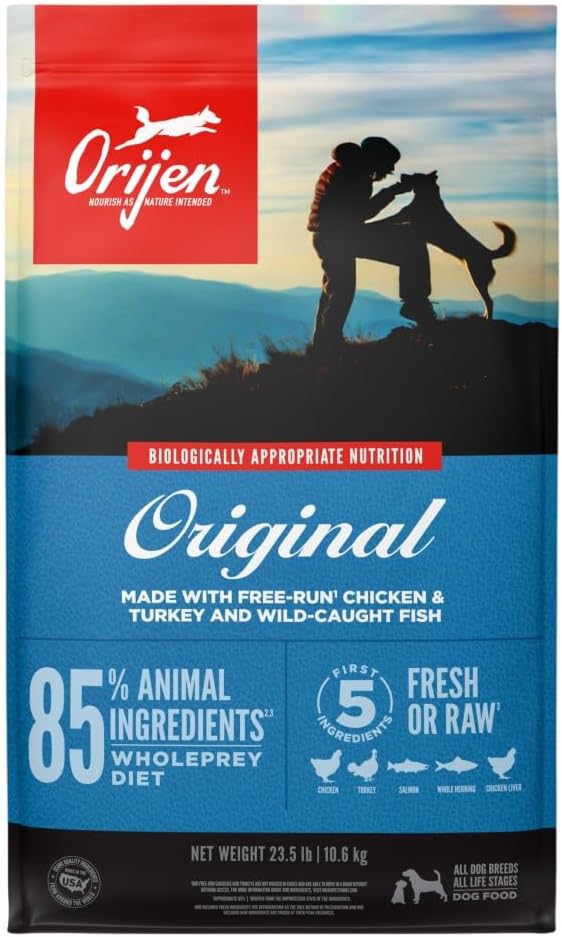
Check Today's Price on: |
|
|
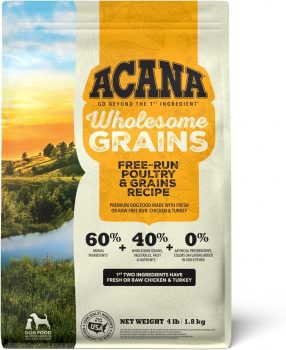
Check Today's Price on: |
|
|
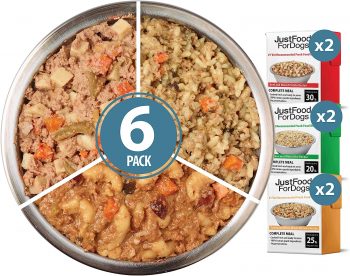
Check Today's Price on: |
|
|
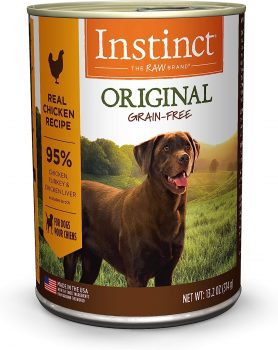
Check Today's Price on: |
|
|
Conclusion
Feeding your Bulldog the right amount of nutritious food is a significant step in ensuring their longevity and overall well-being. Regular vet consultations, monitoring their weight, and understanding their unique dietary needs will ensure your Bulldog remains a healthy and happy member of your family.
Frequently Asked Questions About Feeding a Bulldog
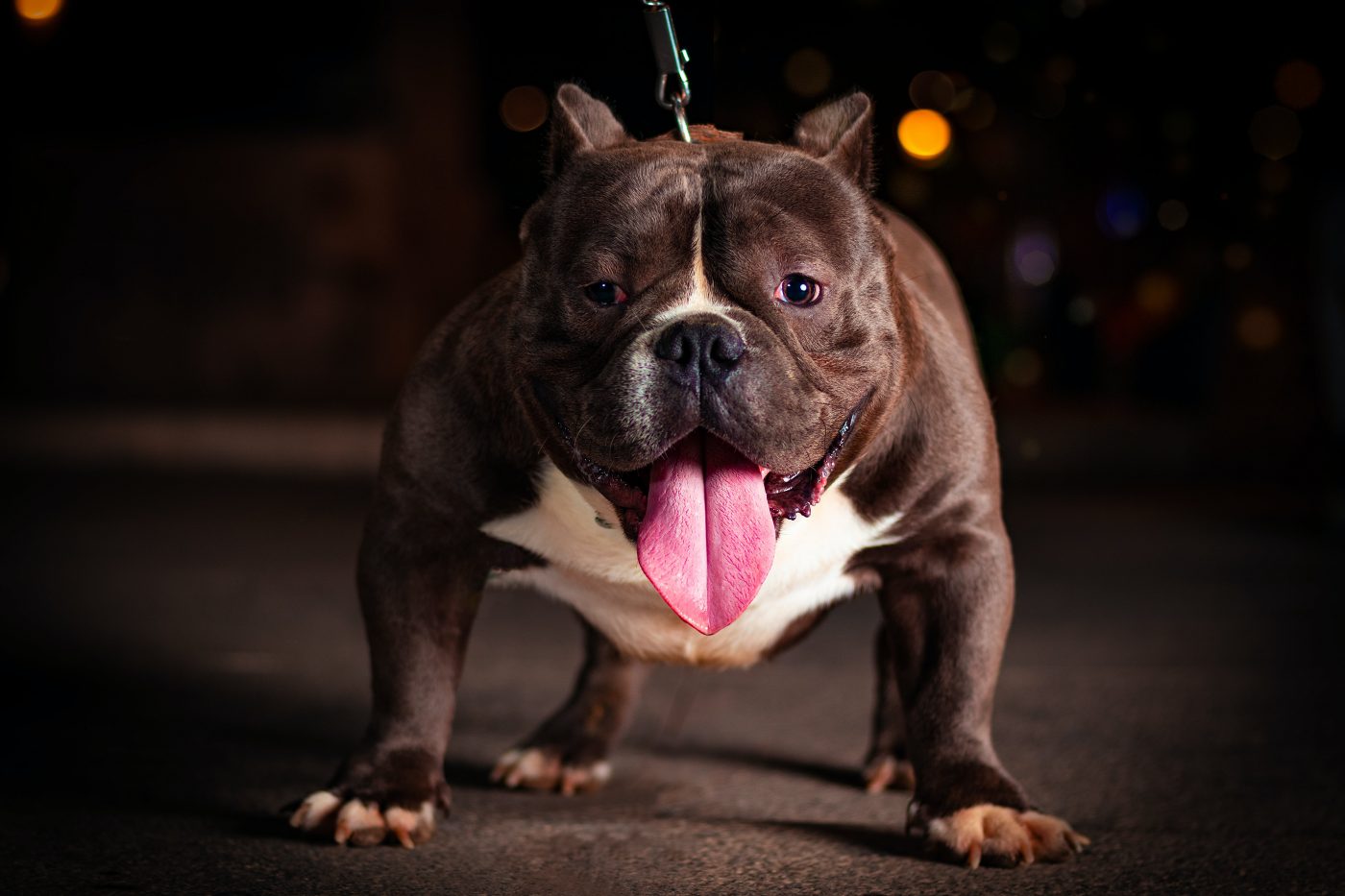
1. How often should I feed my Bulldog puppy?
Bulldog puppies are in a phase of rapid growth and development. It’s recommended to feed them three to four times daily to ensure they’re getting the nutrition they require. As they approach adulthood, this can be reduced to two meals a day.
2. Why does my Bulldog seem always hungry?
Bulldogs have a reputation for being voracious eaters. While they might appear constantly hungry, it’s essential to stick to the recommended feeding guidelines. Overfeeding can lead to obesity, which Bulldogs are already prone to.
3. Can Bulldogs eat fruits and vegetables?
Yes, many fruits and vegetables are safe and healthy for Bulldogs. Apples, carrots, blueberries, and green beans are examples of beneficial additions to their diet. However, avoid grapes, raisins, and onions as they’re toxic to dogs.
4. Are grain-free diets beneficial for Bulldogs?
Grain-free diets can be suitable for some Bulldogs, especially if they exhibit grain allergies. However, it’s essential to ensure the food is still nutritionally balanced. Always consult a veterinarian before making a significant dietary change.
5. How can I prevent my Bulldog from gaining excessive weight?
Monitor their food intake, ensure they’re getting regular exercise, and perform routine weight checks. Feed them high-quality dog food and avoid giving too many treats. If you notice rapid weight gain, consult a veterinarian.
6. What should I do if my Bulldog has food allergies?
Food allergies in Bulldogs can manifest as skin irritations, digestive issues, or ear infections. If you suspect your Bulldog has a food allergy, consult a veterinarian. They might recommend an elimination diet to pinpoint the allergen.
7. Can Bulldogs eat human foods like cheese or meat?
While Bulldogs can eat some human foods in moderation, it’s essential to ensure they’re safe. Small amounts of plain cheese can be okay, and lean meats are generally safe. Always avoid adding seasonings and ensure the food isn’t toxic to dogs.
8. How much water should my Bulldog drink daily?
A Bulldog should have constant access to fresh water. On average, dogs should drink between 0.5 to 1 ounce of water per pound of body weight daily. Given Bulldogs’ potential for respiratory issues, proper hydration is even more crucial.
9. Are there specific treats recommended for Bulldogs?
Opt for low-calorie, healthy treats. Dental chews can be beneficial, helping with oral hygiene. Always avoid treats with artificial additives and look for those with natural ingredients.
10. My Bulldog is a picky eater, what should I do?
Some Bulldogs can be selective about their food. You can try mixing a bit of wet food with dry kibble, warming up the food slightly, or rotating between different high-quality brands. If the pickiness continues or if they stop eating altogether, consult a veterinarian.
 Check Today's Price on:
Check Today's Price on: Toledo, United States.
Toledo, United States.